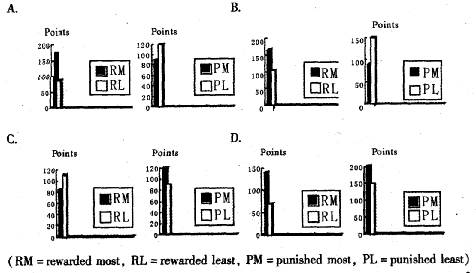题目内容
What makes a house a home?
Not size, of course. I’ve been in some of the grandest houses in America and it’s readily apparent no one lives there. Earlier this year in a mud hut in Ethiopia, where we sat on chairs next to the hostess’s bed—a home that had more warmth than any house I’ve been in since.
Now John Edwards is exploring what makes a house a home in his just-released book-- The Blueprints of Our Lives. There Edwards writes, “ This is a book about homes, the values they rest on, the dreams they are filled with, and the people they have shaped. The houses and circumstances (环境) are different, but much of what you find inside will be familiar.”
Whether you’re sitting in an airport right now, waiting to fly to your childhood home for Thanksgiving, or in your own home waiting for the relatives to arrive, you know what he’s talking about.
We’ve lived in our townhouse for 21 years--the loose windows that make noise in the wind, the fireplace so shallow it holds only one log, the kitchen window that offers a view of the world passing by. It is where friends sit on the kitchen counter drinking wine while dinner is being fixed. I lived there for only 18, but it will always be my true home. Even the lamp in the west living room window, which I could see far down the road when driving home late at night, still shines.
While all this talk about childhood memories can be warm and comforting, home is whom you’re with, not where you are. As Edwards writes, “ Home is family. Home is safety. Home is faith.”
69. What would be the best title for the text?
A. Home means everything B. What’s inside makes us feel at home
C. Home: The Blueprints of Our Lives D. The importance of Houses
70. The purpose of the second paragraph is to _________.
A. mean the author likes living in grandest houses
B. prove the author got along with the hostess
C. mean the feeling of a home isn’t related to the size
D. show the author’s different feelings about houses
71. We know that The Blueprints of Our Lives ________
A. is the description of Edwards’s houses
B. is mainly about houses
C. helps us to understand the concept of home
D. is written by the author of the text
72. According to the text, which of the following can make a house a home?
A. The atmosphere you feel B. The color of the walls
C. The number of family members D. The position of the home
小题1:B
小题2:C
小题3:C
小题4:A

练习册系列答案
 开心蛙口算题卡系列答案
开心蛙口算题卡系列答案
相关题目
 If, however, you move the whole body to a time zone which is four hours different, the two clocks will be out of step, like two alarm clocks which are normally set together, but which have been reset a few hours apart. Whereas the two clocks would normally sound their alarms together, now they ring at different times. Similarly, the body can be set for evening while the sun is rising.
If, however, you move the whole body to a time zone which is four hours different, the two clocks will be out of step, like two alarm clocks which are normally set together, but which have been reset a few hours apart. Whereas the two clocks would normally sound their alarms together, now they ring at different times. Similarly, the body can be set for evening while the sun is rising. delays the body clock in the morning, and advances it at night. Coffee at mid-afternoon is neutral. Protein in meals stimulates wakefulness, while carbohydrates promote sleep. Putting food into an empty stomach helps synchronize the body clock.
delays the body clock in the morning, and advances it at night. Coffee at mid-afternoon is neutral. Protein in meals stimulates wakefulness, while carbohydrates promote sleep. Putting food into an empty stomach helps synchronize the body clock.